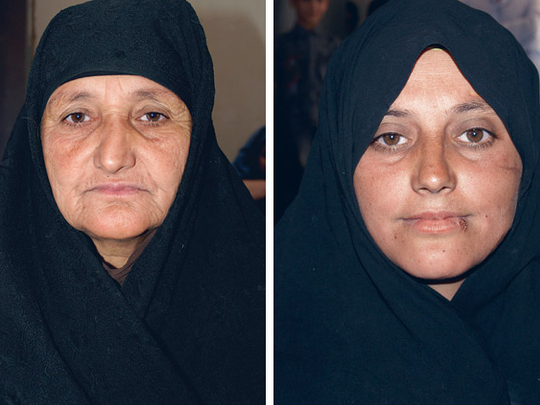
Herat, Afghanistan: Approximately 20 kilometres from the border with Iran lies the small community of Khusan. For some years the residents have been plagued by sand dunes that swamp their villages.
The sand blows their front doors shut, they inhale particles which cause respiratory problems, eye infections are common and children experience stomach disorders.
To address this, Dacaar's (Danish Committee for Aid to Afghan Refugees') Rural Development Programme (RDP) established a sapling project to stabilise certain areas of land and prevent the sand from being blown into the community.
Video: The Afghan gender divide
Video: Exploring Afghanistan
A people under scrutiny in Afghanistan
Blog: Journey to Afghanistan
More than 200 women are employed as farmers, growing the Atriplex plants, for which they are paid eight Afghanis (less than Dh1) each; or 500 Afghanis for 100 plants (Dh41).
Gulf News visited one of the nurseries and spoke to the women about their jobs and what it's like to support their community.
Rahima is young, married, and supplements her husband's income by working in the nursery. The women come to the nursery three times a day to tend to and water their plants.
"This job itself is not hard, but there are some problems in the job that make it a little bit harder for us. The hot weather is a bit of a problem. Some of the plants don't grow, so it wastes our effort, but the job itself is not hard," she said.
Aisha — another woman working on the project — estimates that she's 50 years old.
"I'm very happy with this job…because this job has a lot of benefits for us. The sand creates a lot of problems for us and because our job reduces this, we are so happy.
"The problem has closed the [agricultural] water route to the village," she said.
Jameela Farizi, Dacaar social worker in Khusan, said when the plants are moved into the field it is a big achievement for both the women and the community.












